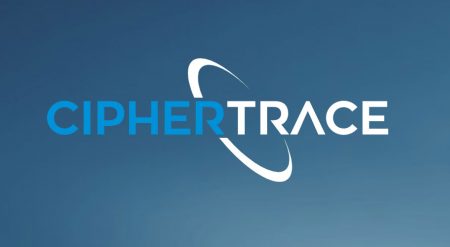By Staff Writer
CipherTrace, the Menlo Park, CA-based crypto intelligence firm, has announced the industry’s most comprehensive virtual asset tracking capability that covers nearly 700 digital tokens and almost 87% of the volume of top 100 cryptocurrencies, according to a statement.
That comprises of more than 87% of the volume of the top 100 cryptocurrencies, including Ethereum (ETH), Tether, Bitcoin Cash (BCH), and Litecoin (LTC).
This expanded monitoring support further includes the capability to trace several hundred ERC20 tokens.
“I would emphasize that this giant leap in blockchain visibility was no easy feat,” said Shannon Holland, CipherTrace CTO.
The latest effort is the culmination of hard work over the past five years and collaboration with global watchdogs and financial investigators such as the US Justice Department, the SEC, the Bermuda Monetary Authority and the Malta Financial Services Authority, he said.
“We can now discern and automatically verify previously unfathomable amounts blockchain data and characterize it with a high level of confidence,” he said. “We will continue to add more tokens and blockchains in the coming months.”
The company uses proprietary algorithms, digital enrichment, advanced clustering and tradecraft combine to trace information on the public blockchain. In addition, CipherTrace also boasts nearly 522 million attribution data points—such as account type, account holders, contract types, contract owners and other metadata—on cryptocurrency addresses.
“Only by helping virtual assets service providers rid their networks of criminals and terrorists will the industry achieve the level of trust required for widespread adoption and government acceptance,” said Dave Jevans, CEO CipherTrace. “Until now, large swaths of the cryptocurrency ecosystem have remained opaque to AML and CTF monitoring. By delivering the most comprehensive cryptocurrency intelligence, we are helping to grow a multi-trillion-dollar global crypto economy.”
CipherTrace Cryptocurrency Intelligence platform is immediately available to end-users via the CipherTrace API for automated monitoring. Users will have the power to explore complete BCH, ETH, ERC-20 and LTC addresses and view valuable details on transactions, wallets, exchanges and smart contracts.
Financial investigators can also now trace Ethereum, Bitcoin Cash, and Litecoin addresses forwards and backward in their transaction history, the statement said.
“Bitcoin takes center stage in financial crime investigations because it is the easiest crypto to obtain and has the largest transaction volume. Still, billions of dollars move through alt-coins daily,” explained CipherTrace’s head of financial investigations, Pamela Clegg.
“To close cryptocurrency money laundering gaps, we must expose more of the true number of illicit transactions that occur across the entire ecosystem. This platform expansion does just that by providing regulators, exchanges, and investors visibility into more than 90% of the virtual asset market trading volume.”
In addition, while tracing an Ethereum address, CipherTrace users can now also explore ERC-20 transactions of interest, or research and explore smart contracts. With a single click on the contract icon, CipherTrace shows details of the smart contract, including all transactions, counterparties, and counterparty attribution.
Banks and other crypto asset businesses are expected to benefit immensely from the addition of support for ERC-20 and other significant tokens.
“Fully complying with AML/CFT regulations requires monitoring ERC-20 transactions for illicit activity. In addition, exchanges need to assure their banking partners that they understand and can monitor the risks associated with these and similar tokens,” said CipherTrace CEO Jevans.
The enhanced platform also now includes Alerting to deliver notifications of transactions and changes to address risk ratings. Watchlist addresses are constantly monitored, and alerts are sent every time an address of interest sends or receives payments.
